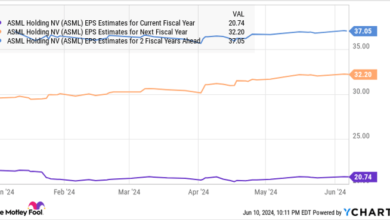Want to Invest in SpaceX or Stripe? There’s a Fund for That.

Stripe, a payments start-up, is one of the most successful companies to emerge from Silicon Valley in a generation. Last year, it hit a valuation of $65 billion. But in the 15 years since it was founded, there has not been a way for most individuals to invest in it.
It is a problem that has vexed retail investors for years, as start-ups like Stripe, SpaceX and OpenAI soar to enormous valuations in the private market. Only so-called accredited investors with a high net worth are allowed to invest in private tech start-ups. By the time the companies go public a decade or more after they started, their growth has often slowed and their valuations are high.
A new fund, Destiny Tech100, is trying to change that with a novel solution. It is offering a publicly traded fund that contains shares of 23 private tech companies including Stripe, SpaceX, OpenAI, Discord and Epic Games. The fund, which began trading on the New York Stock Exchange last week, plans to expand its holdings to include stock in 100 start-ups.
Sohail Prasad, the chief executive of Destiny XYZ, the parent company of the fund, said his goal was to let anyone own part of the tech industry’s top private companies.
“We have tens of thousands of individual investors that are now shareholders in these companies,” he said.
The fund is part of a convergence of the public and private markets that has accelerated in recent years, as investments in private “alternative assets” — including private equity, hedge funds and venture capital — become larger pieces of the overall investment landscape. Venture capital investments in private tech start-ups rose to $170 billion last year from $28 billion in 2009, according to PitchBook, which tracks start-ups.
The pandemic supercharged that trend as more people chased risk and growth by trying to invest small amounts in start-ups, while marketplaces like Forge and Augment sprang up to let investors buy and sell private tech stocks.
Still, start-up investing is generally not available to most individuals. To qualify someone as an accredited investor, the Securities and Exchange Commission requires a net worth of $1 million or an annual income of $200,000 for the past two years.
Non-accredited investors can try to invest in private start-ups through interval funds, which only allow people to sell a portion of their holdings every quarter, or mutual funds, which dedicate just a tiny portion of their overall funds to private companies.
Mr. Prasad was a founder of Forge, one of the marketplaces for private tech stocks, in 2014. He said he started Destiny in 2020 to give people like his father, a management consultant in Texas, access to high-growth start-ups.
Mr. Prasad raised $100 million in funding from investors including a variety of start-up founders like Fred Ehrsam, a founder of Coinbase, a large cryptocurrency exchange; Charlie Cheever, a founder of the question-and-answer site Quora; and Heather Hasson, a founder of FIGS, a medical apparel provider.
Mr. Prasad and a team of five deal makers have used their relationships to get access to the start-up shares that Destiny has bought so far. Private companies can be picky about whom they let own their shares. But as they stay private for longer, their employees and early investors can become antsy to cash out. The most valuable companies have held regular “tender offers” that allow employees to sell their shares, which is one way Destiny Tech100 buys stock.
The fund has also bought shares in Stripe and Plaid, a financial technology provider, through “forward contracts.” In these agreements, start-up employees can get cash by agreeing to transfer their company shares to an investor when the company goes public or sells.
The contracts are controversial. Stripe has said that it forbids its current and former employees to strike such deals and that any forward contract is void. Mr. Prasad said his fund was confident the deals were legal.
Destiny Tech100 has a market valuation of about $365 million. After the companies it has invested in sell or go public, the returns from those investments can be distributed to shareholders as a dividend or reinvested in the fund. Mr. Prasad said the fund planned to hold the stocks for a time after a company goes public. The fund charges an annual fee of 2.5 percent.
James Seyffart, a research analyst at Bloomberg Intelligence, said such a fund was the only way for many investors to get exposure to these companies, especially with smaller amounts of money.
“Even if you are accredited and can get into them, there are often very high minimums” needed to invest, he said.
The biggest risk to investors in the new fund is whether the price of the stock reflects the value of the underlying assets, he added.
The S.E.C. limits who can invest in private tech start-ups for a reason: Such investments can be risky. Private companies are not required to share information about their operations, and it can be difficult to assess their valuation. Many tech start-ups are also unprofitable.
The Destiny Tech100 fund has become available as investors have pulled back on many tech investments. (Companies that are focused on artificial intelligence remain in demand.) Instacart and Reddit, well-known consumer tech companies that recently went public, are trading below their last private valuations. Destiny Tech100 owns shares in Instacart, which it bought before the company went public.



